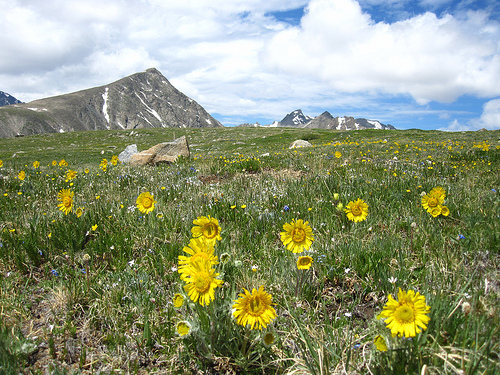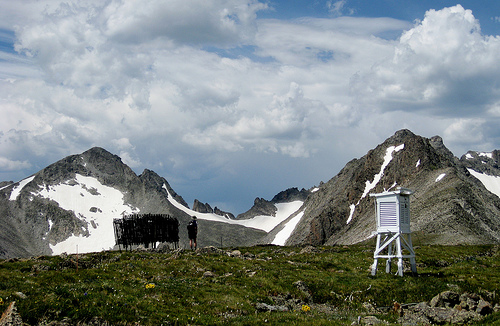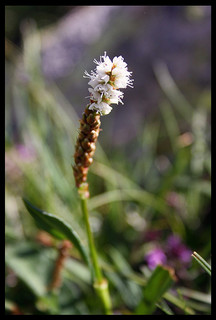 When I was a biology researcher, the strangers I met at parties and on airplanes were always impressed when I told them how I made my living. Evidently, they envisioned my work as something out of Jurassic Park—a thrilling journey packed with breakthroughs and adventures. Few suspected the truth: doing science is mostly about performing mundane, repetitive tasks.
When I was a biology researcher, the strangers I met at parties and on airplanes were always impressed when I told them how I made my living. Evidently, they envisioned my work as something out of Jurassic Park—a thrilling journey packed with breakthroughs and adventures. Few suspected the truth: doing science is mostly about performing mundane, repetitive tasks.
My last research job was in a human genetics lab. For two years, I labored on a map of human chromosome 18. I did experiment after experiment to decipher the order of DNA along the 18th largest chromosome in the human genome. My job title was Professional Research Associate, but I gave myself a more fitting title, which I hung above my lab bench–Liquid Transfer Specialist.
When I came to work in the morning, I would thaw tiny tubes of frozen reagents on my lab bench and begin the day’s task—transferring swatches of DNA from one tube to another and then another and, finally, into an electrophoresis gel—a jello-like mold infused with chemicals to visualize the DNA fragments I’d injected. Along the way, I would dilute, mix, heat, cool and photograph these DNA cocktails, but essentially my job boiled down to one task — transferring liquid from one place to another.
While the job didn’t require mental acrobatics, it did require diligence and attention to detail. On any given day, I would oversee hundreds of chemical reactions and keep track of thousands of tiny tubes. The most difficult task was keeping everything straight, making sure each cocktail was transferred to the correct tube and mixed with the proper reagents before proceeding to the next step. I often lamented that these chores required just enough attention to preclude wandering daydreams, but not enough thought to keep my mind happily occupied.
But whenever I’d resigned myself to mindless work, something would happen that required me to dust off my brain and think again. Sometimes experiments would fail for no apparent reason. Other times results from one experiment would contradict another, and I’d spend a day or two troubleshooting. My days in the lab were not complete drudgery and boredom. By respecting the mundane repetition of my work as an important step to solving a mystery, I found a certain fulfillment in accomplishing these simple tasks. As my results came in, a coherent story emerged that endowed meaning upon my work.
 At times I savored the repetition that comes with the job. As an undergraduate at the University of Colorado, I wrote my thesis on the reproductive system of an alpine plant. Morning after morning one summer, I would catch a 6 a.m. shuttle from Boulder to the Mountain Research Station in the Indian Peaks west of town. From the Research Station, I’d hike with about a dozen other researchers two miles up to our research sites on Niwot Ridge. I’d collect flowers from my three sites on “the Ridge” and then hike up another mile and take samples from my high altitude site. Despite the unpredictable weather and constant wind, I savored these summer days spent above treeline. Each morning I’d wake up eager for the rugged vistas and the subtle changes each day bestowed on the alpine landscape.
At times I savored the repetition that comes with the job. As an undergraduate at the University of Colorado, I wrote my thesis on the reproductive system of an alpine plant. Morning after morning one summer, I would catch a 6 a.m. shuttle from Boulder to the Mountain Research Station in the Indian Peaks west of town. From the Research Station, I’d hike with about a dozen other researchers two miles up to our research sites on Niwot Ridge. I’d collect flowers from my three sites on “the Ridge” and then hike up another mile and take samples from my high altitude site. Despite the unpredictable weather and constant wind, I savored these summer days spent above treeline. Each morning I’d wake up eager for the rugged vistas and the subtle changes each day bestowed on the alpine landscape.
Once I’d collected all the day’s samples, I’d hike back down to the shuttle where I’d hitched my mountain bike to the rack. Mounting my bike, I’d ride the 20 miles to town down a dirt road through aspen groves and wildflower meadows. I couldn’t afford to waste time—my experiments required fresh flowers. I was testing for pollen viability, which necessitated dissecting the plant’s miniscule flowers and counting pollen grains under a microscope. While I thrived on the morning ritual of hiking up the steep ridge, I wasn’t as keen on the repetition of lab work. I counted thousands of pollen grains that summer. Once the short alpine field season was over, the mundaneness of lab work took over. That fall, I embedded hundreds of flowers in plastic and cut them into thin slices that I stained and examined under the microscope.
 Those tedious hours I spent behind the microscope paid off. My results suggested this plant was losing its ability to reproduce sexually. I had captured a snapshot of evolution in action. I wrote up my results and presented them at a scientific meeting where they withstood the scrutiny of other more seasoned scientists. But the fun of finding something interesting came only after hours of repetitive labor that required little brainpower. Interesting results are seductive, but to get them takes hours of careful repetitive toil.
Those tedious hours I spent behind the microscope paid off. My results suggested this plant was losing its ability to reproduce sexually. I had captured a snapshot of evolution in action. I wrote up my results and presented them at a scientific meeting where they withstood the scrutiny of other more seasoned scientists. But the fun of finding something interesting came only after hours of repetitive labor that required little brainpower. Interesting results are seductive, but to get them takes hours of careful repetitive toil.
In many ways, doing research is like building a house or digging a ditch. Much of the satisfaction comes from accomplishing the goal with acceptable results. Someone digging a ditch for a gas pipe must know how deep and wide the trench must be, and experience shows the digger the best way to accomplish the job. Deciding where to place the ditch takes thought, but digging just takes muscle. Likewise, researchers must plan out their experiments and interpret their results, but collecting the data usually takes just diligence and attention to detail.
Repetition is a thread that unites many otherwise dissimilar trades. Sometimes in my new incarnation as a science writer, I’m expected to present an image of science as a fast-paced titillating pursuit. But my years in research taught me the dull secret behind the hype: science is a slow and tedious process.
***
Images: Niwot Ridge flowers by im me.
Mountain Research Station site by tab2space.
Polygonum viviparum L. by Cristina Rota Moreno
Nice peek into how most science, and esp biology, is really done. When I left graduate school, I was happy to leave pipetting behind. It can be hard to switch between the two modes of thinking required to do science–to continue thinking alertly when so much of the work is simple drudgery. But the life of a lab head is very different from that of a technician or student–much more varied. I don’t think time in the lab prepares one well for that leap.
Had a sense of deja vu, while reading this. I did research in synthetic organic chemistry and at some point there was this one key reaction that I got to work the first time, but was unable to ever get it to work again. After about 2 months of trying and burning material, my boss told me to stop, that the definition of insanity is to keep trying the same thing over and over again, expecting a different result.
Ex-molecular biologist here! Thanks for this. Sometimes I feel like I’m the only one out there with these kinds of thoughts.
Science IS drudgery sometimes – but smart drudgery, with a purpose.
Science is avoidance of direct experience, but finds some interesting things along the way
Long term, ignoring the subjective is counter productive
Nice piece of beginning writing. You kest it interesting to a broad audience and used a laudably human touch. I would recommend you take a minute after you write (and first edit) settle back and unfocus your mind’s eye. Is their a larger context that applies? Your work while mundane at a task level, added a new solid bit of information to science. And you were working in evolution related science, a very prestigious neighberhood. You finding is similar to a neuron in a human brain, one of very many; but each capable of giving rise to many more interconnections. Who can know where your finding will contribute to further work on evolution, climate, threats to species, alpine environments, etc.? On behalf of some 7 billion contemporaries, thanks for making us just a little bit smarter. Now if someone could just make us wiser….
P.S. I was a senior and managing editor at several engineering and technical journals among my past misdeeds.